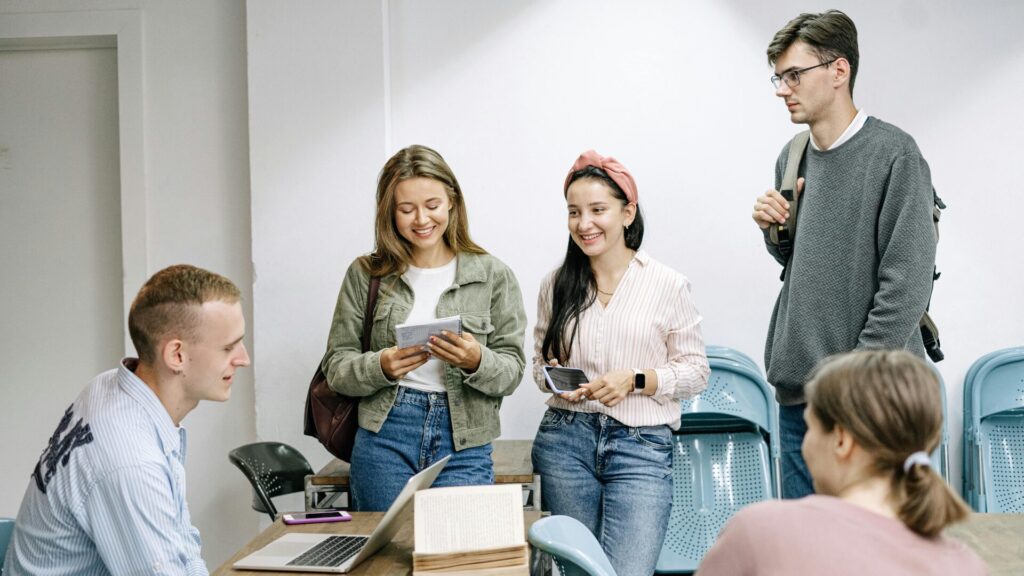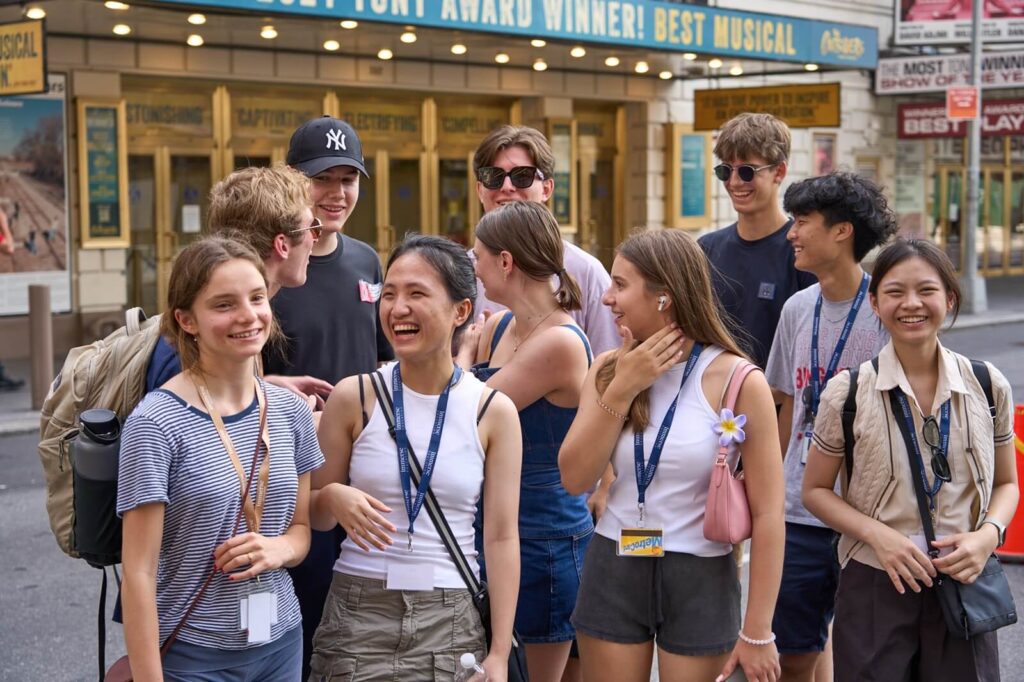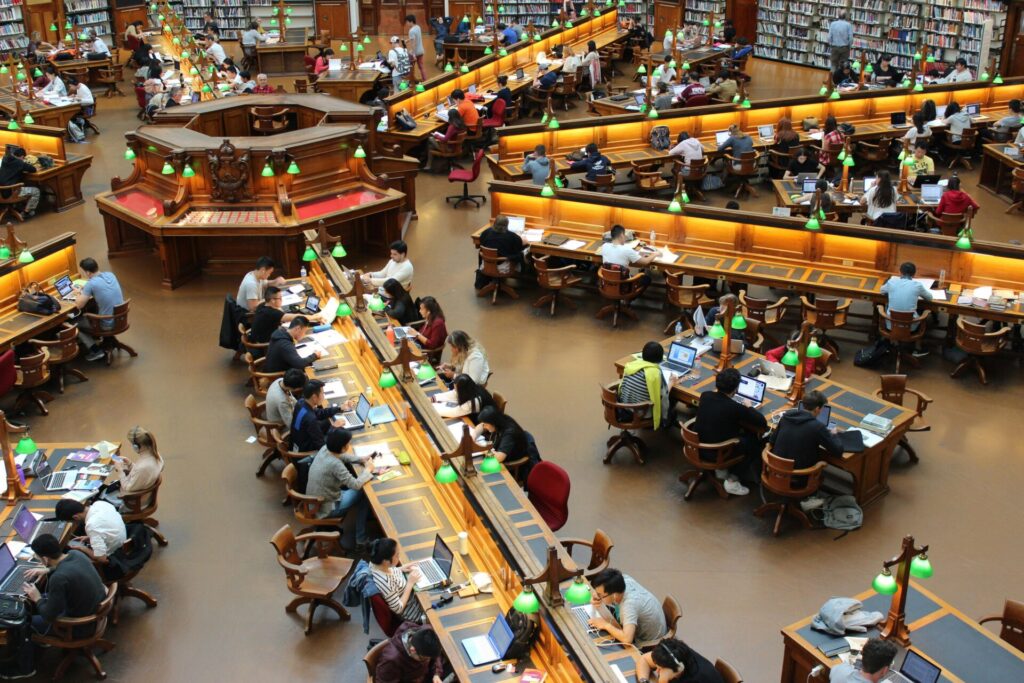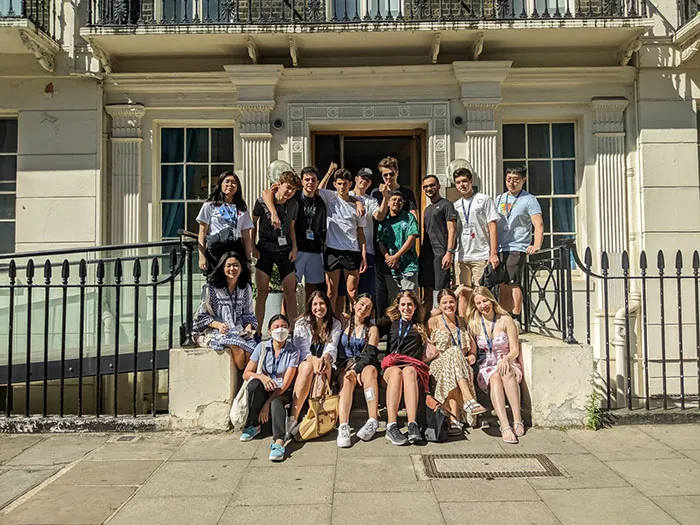Critical thinking allows learners to individually develop ideas, make connections between concepts, and form logical conclusions in multiple ways.
You use this skill without realising it, such as deciding how to approach a group project. Decisions such as allocating tasks and ensuring a project is completed within the given timeframe require critical thinking. It also makes sure that you don’t believe everything at face value – a hugely important skill in an age of misinformation.
A programme participant with critical thinking skills can quickly analyse facts and information to form a judgement. They think creatively in academic sessions and find new ways to apply knowledge.
In this post, we’ll discuss critical thinking, why it is essential, and list several examples of related and constituent skills.
What is Critical Thinking?
Critical thinking involves analysing facts or information to understand a situation or problem. This process includes a few steps, such as data collection, asking questions, and evaluating applicable solutions.
Thinking critically goes beyond racking up good grades in school. Learners use these skills to explore themes, language, and characters and decide based on this information.
It is the art of thinking about thinking in a logically disciplined manner. It might sound confusing, but to improve this skill, you’ll have to analyse and assess the way in which you think. Thinking about how you think can improve the way you think. Say that 10 times fast!
Critical thinking can be defined as one’s ability to analyse a situation to make an ideal decision. However, there’s much more to it. Learners must see both sides of a problem or situation and welcome any information that challenges their thinking. A critical thinker will consider all claims and whether they are backed by facts, and eventually draw effective conclusions from them.
Why Is Critical Thinking Important?

Critical thinking is handy in many areas of one’s life, including academic settings and work environments. It helps you make simple, life-changing decisions requiring much thought.
Here are crucial reasons why you need to have these skills:
It’s Universal
Critical thinking is universal, meaning the skill will remain relevant no matter your career or professional path. It is not specific to any field and will always be critical to your success.
It Improves Language and Presentation
During a presentation, you need to master a language and think systematically for better delivery. You must use critical thinking, which involves breaking down chunks of text and improving comprehension.
It’s the Basis of Science and Democracy
The world requires critical thinking to prove scientific facts and have a democracy. All theories must be backed with facts and knowledge to be effective.
What Skills Are Related to Critical Thinking?
Critical thinking is a skill that offers numerous benefits for students, workers, and everyone in general.
Let’s explore some of these advantages:
It Enhances Creativity
Encouraging learners to be critical thinkers helps them develop a sense of curiosity about the things happening around them. A genuine curiosity pushes students to assess and analyse information and occurrences.
This curiosity also helps enhance their creativity as they develop out-of-the-box ideas. Trying to get answers through rational and logical thinking gets one’s creative juices flowing.
It Promotes Self-Assertion
Critical thinking comes from within you, meaning it’s self-motivated, self-monitored, and self-disciplined. One internalises the problem to get a deep understanding, which helps develop perfect or almost perfect solutions.
Critical thinking allows individuals to reflect on and understand the world from their own point of view. They become self-assertive and confident as they get results from a well-thought-out process.
Critical Thinkers Become Innovators and Problem-Solvers
Analysing and assessing problems constructively and creatively is a by-product of creative thinking. This makes you invariably good at problem-solving as you distinguish facts from opinions and fiction.
They help students become effective innovators and problem solvers who can develop bias-free solutions. This helps them become even better in the employment arena.
Thinking Critically Helps Learners Ask the Right Questions
Asking questions is an effective way to practice critical thinking. As time progresses, you find yourself asking better questions to help you gather information about a problem to understand it better.
Developing a practice of asking questions improves one’s knowledge and ability to solve complex challenges.
It Improves Communication Skills
People who possess critical thinking skills can better structure their messages for the most possible impact. This skill allows you to rank the most important messages, making them better communicators.
Quick communication is a critical skill in today’s fast-paced work environment. It helps increase productivity and enhance the overall performance of a business.
It Boosts Career Prospects
Advanced critical thinking skills give you a logical and systematic mindset to help you approach challenges. They help you better predict likely outcomes and make better decisions in life, including your career.
Join the Immerse Education 2025 Essay Competition
Follow the instructions to write and submit your best essay for a chance to be awarded a 100% scholarship.

How to Improve Your Critical Thinking
The difference between learning and memorisation is critical thinking. Everything you learn in an academic program may have an impact on your professional life.
Following facts and ideas from an institution is not enough to succeed professionally. You must learn critical thinking to help you find the connection and meaning of what you learn.
Here are ways to improve your critical thinking skills to help you make informed decisions in life:
Ask Questions
Students who hesitate to ask questions during academic sessions find facing situations later in life challenging. This could be due to fear of embarrassment or speaking in public.
When you ask a question, it often leads to another question that further helps clarify your concepts. If you are afraid of speaking in public, you can reach out to your tutor to clarify your questions.
Take Part in Discussions
Social experiences like online and offline discussions help program participants develop critical thinking skills. They encounter different perspectives from other individuals, giving them much to think about.
In group discussions, there is an introduction to new information, which can cause disagreements and arguments. This gets you thinking a lot while bettering your communication skills.
Find Your Own Reliable Sources of Information
Individuals afraid of asking their tutors questions turn to the internet and other information sources. There’re many anonymous sources that may offer misleading or outdated information.
Reputable sources such as established news sites, education institutes, and nonprofit organisations can offer more reliable information. They also provide dates to help you determine if the information is valid for your problem.
Question Your Own Biases
People may pretend, but everyone has biases in various situations. The trick to questioning your biases is objectively thinking about what you like and don’t like and your preferences.
Your beliefs can also affect your thinking, leading to a specific decision.
Understand How You Think
How do you receive information? How do you process and interpret it? Understanding how your mind works can help you become a better critical thinker.
Take time to identify and evaluate your mental process to understand how you receive and react to information. Effective critical thinkers must recognise their own judgements and know how they impact their decision-making.
Examples of Skills That Fall within Critical Thinking
These skills are key components of critical thinking, helping you analyze facts and data to reach logical conclusions. Attending critical thinking training can help you further develop them.
Here are the main skills with a significant role in critical thinking:
Analysis
The ability to analyse information is one of the most essential aspects of critical thinking. Analytical thinking begins the entire thinking process by gathering information and interpreting it to determine what applies to your situation.
Communication
You must communicate clearly when seeking information from others or trying to convince them that your conclusion is correct. Critical thinking helps develop your communication skills by putting you in situations where you have to interact with others.
Creativity
Your creativity develops when you find multiple ways to identify patterns and connections in seemingly unrelated data. It helps you analyse procedures and processes to creatively develop ways to make them quicker and more efficient.
Research
Most people mistake research for a process where you collect data, facts, or evidence and piece it together in one paper. However, an effective research program mainly involves inquiry.
You ask multiple people questions while reading to develop answers through thoughtful reflection and critical thinking.
Active Learning
Reciting what you study in an academic session can help you remember it, but you will rarely understand it. Active learning is a critical thinking skill that relies on an experiential approach.
Effective critical thinkers achieve active learning through group discussions, visual learning, demonstrations, and case studies.
Problem-solving
Critical thinking involves analysing a problem and working on the most appropriate solution. For example, if you spend a lot of time working on some programs, you can find ways to allocate time for each project, such as having a timetable.
Conclusion
Critical thinking skills are essential for people of all ages. However, developing this skill as early as possible is important to make better life decisions.
Program participants in universities and other learning institutions find it easier to process information through critical thinking.
It helps learners develop curiosity, making them ask more relevant questions and understand concepts instead of memorising them.
Immerse Education helps learners from various parts of the world access courses from world-renowned institutions. We connect you with experts who can help you perform better in research projects and other academic programs. Enrol on our Online Research Programme today to have support in writing a university-level research paper whilst still in high school!


























